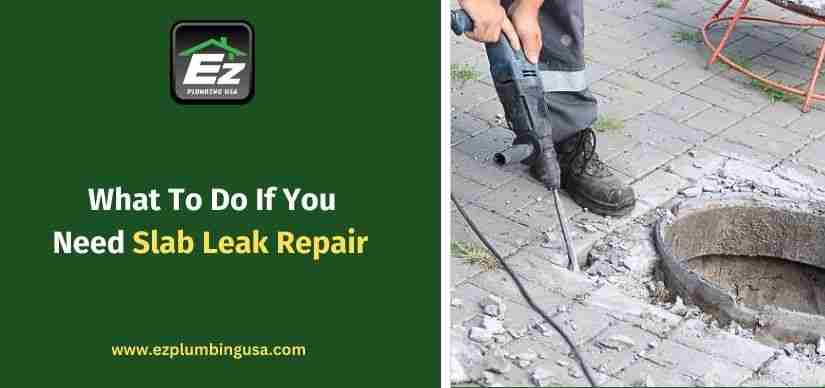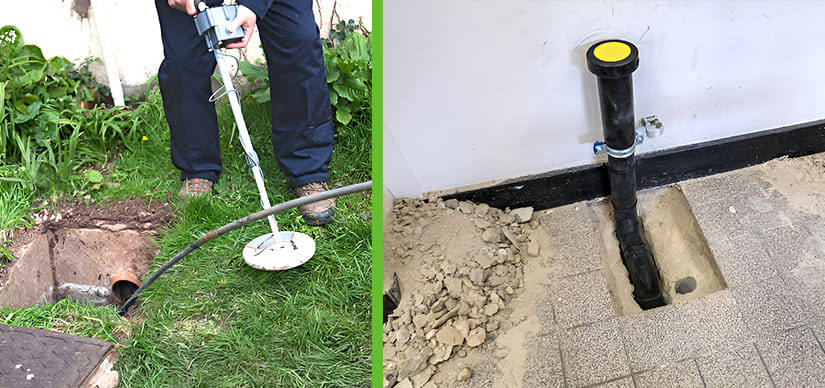What To Do If You Need Slab Leak Repair
Views : 631

Understanding Slab Leaks
Common Signs of Slab Leak
- Higher Utility Bills: A sudden rise in your utility bill may indicate a water leak somewhere below surface level.
- Wet or Warm Spots: It could mean that the pipes underneath are not performing up to par because you may find dampness or warmth rising from the floor.
- Low Water Pressure: Falling water pressure may tell that water is escaping before you can reach your faucets.
- Mold: That moisture persists, and mold can grow in very unusual places.
- Foundation Cracking: Your foundation may weaken from a slab leak, which may eventually lead to cracks.
The Importance of Professional Slab Leak Repair in San Diego
Why Choose Professionals?
- Detection Precision: Modern gadgets like electronic leak detection pinpoint the exact position of the leak without unnecessary digging.
- Minimal Damage: Expert plumbers employ noninvasive techniques when working techniques in order to minimize damage to your property.
- Long-Term Solutions: Professionals provide repairs that last and are away from needing repeated fixes.
- Cost-Effective: May save money on future repairs and extensive water damage if the concern is attended to early by an expert.
Methods of Slab Leak Repair
- Rerouting Pipes
When there is a small leak but not a large portion of the pipe, this could be an excellent solution. The plumber reroutes the water from new pipes, bypassing the damaged area. - Spot Repair
Localized leaks are repaired by cutting through the concrete slab and gaining access to the pipe itself for repairs. Although pretty effective, this method usually requires some restoration afterward. - Pipe Coating with Epoxy
It is done inside the pipe to seal cracks and prevent further leakage. This means a non-invasive way of repair for small leaks. - The Whole Pipe Replacement
If the plumbing in most of the house is old or has a great deal of damage, then complete pipe replacement is the best option. Its upfront cost is heftier, but this is a permanent solution for recurring slab leaks.
Preventing Future Slab Leaks
- Regularly Scheduled Inspections: Routine checks under a plumber's roof may spot future problematic areas before they become major problems.
- Investing in Quality Utilities: Pipes should be changed with quality, corrosion-resistant, and wear-resistant utilities.
- Keep Water Pressure at Stable Levels: High levels can become too much for pipes to absorb and lead to a leak.
- Watch the Soil Conditions: Extremes can push the foundation and crack pipes, buried cadre, within. Close the hardware-soil stable around by working with a professional.
Why EZ Plumbing USA Is Your Trusted Partner
Our Services Include:
- Detection of leaks accurately
- Repair methods are non-invasive.
- Plumbing services from A to Z
- Resolution of all emergencies, around the clock
Conclusion
FAQs
Q1. What causes slab leaks?
Corrosion of the pipes, installation errors, or movement of the soil usually cause slab leaks. However, external pressures and old pipes also contribute to leaks under a concrete foundation.
Q2. How can I tell if my slab is leaking?
Signs include increased water bills, wet patches on the floor. You may also see a drop in water pressure or cracks on the floor slab.
Q3. Can slab leaks damage my home?
Yes, if a slab leak goes untreated for long, foundation damages occur, mold infestation grows, and costly repairs follow.
Q4. How long does slab leak repair take?
The average time frame is typically one to three days, depending on the difficulty of the leak and the method used.
Q5. Is slab leak repair covered by insurance?
Coverage varies by policy. Many home insurance plans cover sudden water damage but may not include long-term pipe issues. Check with your provider.




